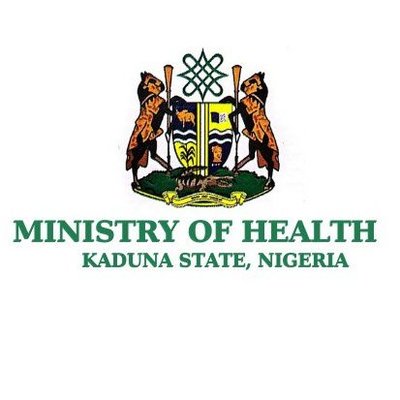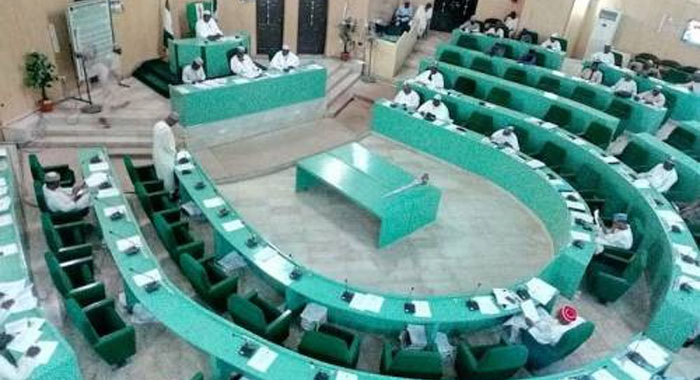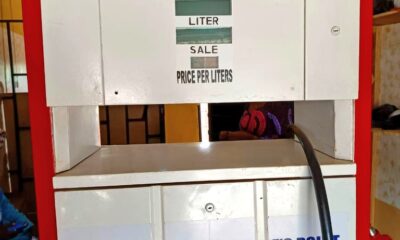Health
Herbal sex enhancing drugs laced with cannabis, dangerous chemicals – NAFDAC
The National Agency for Food and Drug Administration and Control (NAFDAC) says it has begun nationwide crackdown on producers of unapproved sex enhancing drugs in the country.
The Director-General of the agency, Prof. Mojisola Adeyeye, made this known at a news conference on Friday in Abuja.
She said that the step was taken after clinical analysis revealed that most of the sex enhancers were laced with Indian hemp and very dangerous chemicals that could damage the liver and kidney.
Adeyeye said one of the dangerous products discovered by NAFDAC was “Kurkura”, used particularly in the Southwest and Northern axis of the country.
The D-G listed five types of “Kurkura” to include: Five minutes’ power herbal medicine, Haonu laha herbal mixture, Gamzaki tradomedical herbal ventures, and Barakallahu multipurpose herbal mixture.
“Out of the above, only Haonu laha herbal mixture is registered, but nonetheless laced with unapproved substances that are injurious to the body.
“Among many others, Kurkura is an illicit product illegally consumed for the sole aim of getting intoxicated.
“The substance when used can be harmful to the body organs such as the brain, kidney and liver. The damage to the kidney and liver cannot be overemphasised.
“This substance can cause irrational thinking, altered state of mind, which if taken by drivers can lead to road traffic accidents with attendant fatality consequences.
“This could also lead to criminal behaviours such as rape, kidnapping and murder,” she stressed.
The D-G said that the agency would prosecute any of the illegal manufacturers and distributors arrested.
“Findings from various operations carried out by the agency revealed a dangerous trend in the use of such substance laced with high concentration of tobacco and sometimes cannabis.
“Some categories of people in the population such as artisans, drivers, commercial motorcycle drivers and others, have been engrossed in the consumption of these substances, which are dangerous to the health.
Adeyeye said that the agency recent impounded some dangerous herbal aphrodisiacs in Zaria, Kaduna State.
She listed the products as: Gagare manpower, Minister for manpower, Almenjou for lazy men in bed, Nisan zango karfin maza, Shagalin ka manpower, Dakan jiya manpower enhancement, Wuff male sexual performance and Afafata.
“So far, only one of the illegal factories involved in the production of such unauthorised products has been shut down and the owner arrested,” the D-G said.
Adeyeye explained that the owner was using Hyergra 200 (Sildenafil Citrate tablet), Amafranil tablets (Clomipramine tablet 25mg) and Cannon Extra (Paracetamol 500mg + Caffeine 30mg) in the production of his fake herbal aphrodisiacs.
“The owner admitted that he dissolves the Hyergra 200, Cannon Extra and the Amafranil in a drum and mixes the content with boiled Kanunfari, Garlic, Dundu, Marke, Hankufa, Sweetener and Sodium Benzoate to make up the manpower preparation.”
She added that the label on the prepared herbal manpower drug reads 100 per cent herbal.
The D-G also said that an alcoholic bitters product popularly known as “Japata” which was duly registered by the agency, was discovered to be laced with marijuana, quite different to the registered one which only had ethanol.
According to her, NAFDAC has been able to shutdown the company and will continue with the raid.
She urged well-meaning Nigerian to be drivers of the war against fake and counterfeit drugs, as well as adulterated and unwholesome foods and other regulated products.
Adeyeye assured Nigerians that NAFDAC was doing all it could to ensure that only safe medicines and wholesome foods were sold to citizens.
The D-G also solicited the support of health practitioners, community and religious leaders, the press and all other stakeholders, to enlighten the citizenry not to patronise quacks.
She called on Nigerians to be watchful of drugs, food and other regulated products they purchase and report any suspicious activities within their environment to NAFDAC.
Health
FG bans use of foreign syringes, needles in tertiary hospitals


The Federal Government has mandated all Chief Medical Directors (CMDs) and Medical Directors (MDs) of Federal Tertiary Hospitals to procure needles and syringes solely from NAFDAC-approved local manufacturers.
The new directive is contained in a circular addressed to all CMDs and MDs signed by the Minister of State for Health, Dr Tunji Alausa, on Friday.
The minister said that the directive was aimed at boosting domestic production and shielding the country’s manufacturing sector from the influx of foreign goods.
The circular also mandated NAFDAC to stop issuing licences for the importation of foreign manufactured needles and syringes.
Alausa said the health sector had dentified local pharmaceutical industries that produce needles and syringes that were in serious trouble because of the practice.
He also said that out of the nine local pharmaceutical companies that produced needles and syringes eight years ago, six have folded up due to the dumping of largely substandard goods into the market.
“Mr President has directed that this must stop. We all agreed to take the necessary steps to immediately remedy this sad situation.
“Pursuant to this, NAFDAC has been mandated to stop issuing licences for the importation of foreign manufactured needles and syringes.
“It is also to de-list companies involved in the importation of these products going forward,” he said.
Alausa said ”all our tertiary hospitals are hereby directed to procure needles and syringes for your hospital needs from only the NAFDAC-approved local manufacturers listed below are listed either directly or through any of their vendors.
“EL-Salmat Pharmaceuticals Company Ltd Block, Brand Name: Salmaject, HMA Medical Ltd., with brand Name: Deleject and Afrimedical Manufacturing and Supplies Ltd.”
He also listed some of the distributors of the listed companies in some states of the Federation for easy access to assist in making the procurement process easier in the various institutions.
Health
KDSG trains 180 Red Cross volunteers on Lassa Fever intervention


The Kaduna State Ministry of Health has begun a three-day training for 180 Red Cross volunteers on Lassa fever intervention.
The training, which is facilitated by the ministry and funded by the Red Cross, is meant to equip the volunteers selected from 5 LGAs in the state with necessary skills.
The volunteers were drawn from Zaria, Igabi, Kaduna South, Kaduna North and Chikun Divisions.
The State Epidemiologist, Dr Jeremiah Dikwu, said the volunteers were trained with the knowledge needed to massively intervene during cases of Lassa fever in the state.
He said that the intervention would include Risk Communication and Active Case Search, Psychological First Aid, Rodent Control and Hygiene Promotion for the next 3 months.
Dikwu said the training started with 30 volunteers on surveillance and would end with the training of 150 volunteers on Risk Communication and Community Engagement .
According to him, Lassa fever is a viral hemorrhagic fever transmitted by rats.
He added that Lassa fever has been known since the 1950s, but the virus was not identified until 1969, when two missionary nurses died from it in the town of Lassa in Nigeria.
Dikwu added that Lassa fever was caused by a single stranded RNA virus and disseminated systemic primary viral infection.
“The main feature of fatal illness is impaired or delayed cellular immunity leading to fulminant viraemia,” he said
The epidemiologist said that Lassa fever presented symptoms and signs indistinguishable from those of febrile illnesses such as malaria and other viral hemorrhagic fevers such as Ebola.
“It is difficult to diagnose clinically but should be suspected in patients with fever (e”38°C) not responding adequately to antimalarial and antibiotic drugs.
“The most useful clinical predictors of Lassa fever are fever, pharyngitis, retrosternal pain, and proteinuria for diagnosis; and fever, sore throat, and vomiting for outcome,” Dikwu said.
He said that Ribavirin and general support were needed.
“Ribavirin is almost twice as effective when given intravenously as when taken orally, and if given within six days of the start of illness it may reduce deaths by 90 percent.
“Dehydration, oedema, hypotension, and poor renal function are common; fluid replacement or the use of blood transfusion requires careful monitoring,” he said.
Dikwu said the volunteers would be carrying out Risk communication and Community engagement, Active Case Search, Psychological First Aid, Rodent Control and Hygiene Promotion
Health
Assembly passes Kano Pre-Marital Health Screening Bill


Kano State House of Assembly has passed a bill for a law to compel intending couples to undergo HIV, hepatitis and sickle cell anaemia screening before marriage.
The passage followed deliberations in the Committee of the Whole House during plenary session,
presided over by the Speaker, Ismail Falgore on Monday in Kano.
After deliberations, the lawmakers approved the 3rd reading of the bill, read by the Deputy Clerk, Alhaji Nasiru Magaji.
Shortly after passage of the bill, the Majority Leader of the house, Lawan Hussein (NNPP-Dala), stated that “any person
intending to marry shall first submit self for medical examinations.”
He said the bill was considered and passed after the 3rd reading, following various legislative processes.
The leader further said that the bill was passed because the state had been battling with different health issues, including
HIV because people go into marriages without medical screening.
He said that the bill, if signed into law, would save many lives and curb the spread of life-threatening diseases.
“The bill will safeguard the health of citizens by institutionalising pre-marital testing to check the spread of diseases
like hepatitis, HIV and sickle cell anaemia,” he added.
-
capital market2 years ago
Rt.briscoe, FBNH, Others halts negative performance of stock market
-
Finance3 months ago
Court orders Sen. Victor Umeh to repay N136m bank debt to AMCON
-



 Abuja Update2 months ago
Abuja Update2 months agoUNDP, FG partnership needed to achieve inclusion, equity- Minister
-
Abuja Update1 month ago
Banks drive stock market performance with N147bn gain
-



 Business2 weeks ago
Business2 weeks agoTingo Group unveils Tingo Electric, Tingo Cola drink at Lagos launch
-



 Health3 weeks ago
Health3 weeks agoCapacity training will reduce migration of health workers- NPHCDA
-
News4 months ago
Oil thieves sponsoring malicious media campaign against Navy – Spokesman
-



 Infotech1 month ago
Infotech1 month agoWorld Backup Day: NITDA urges Nigerians to ensure backup of data














